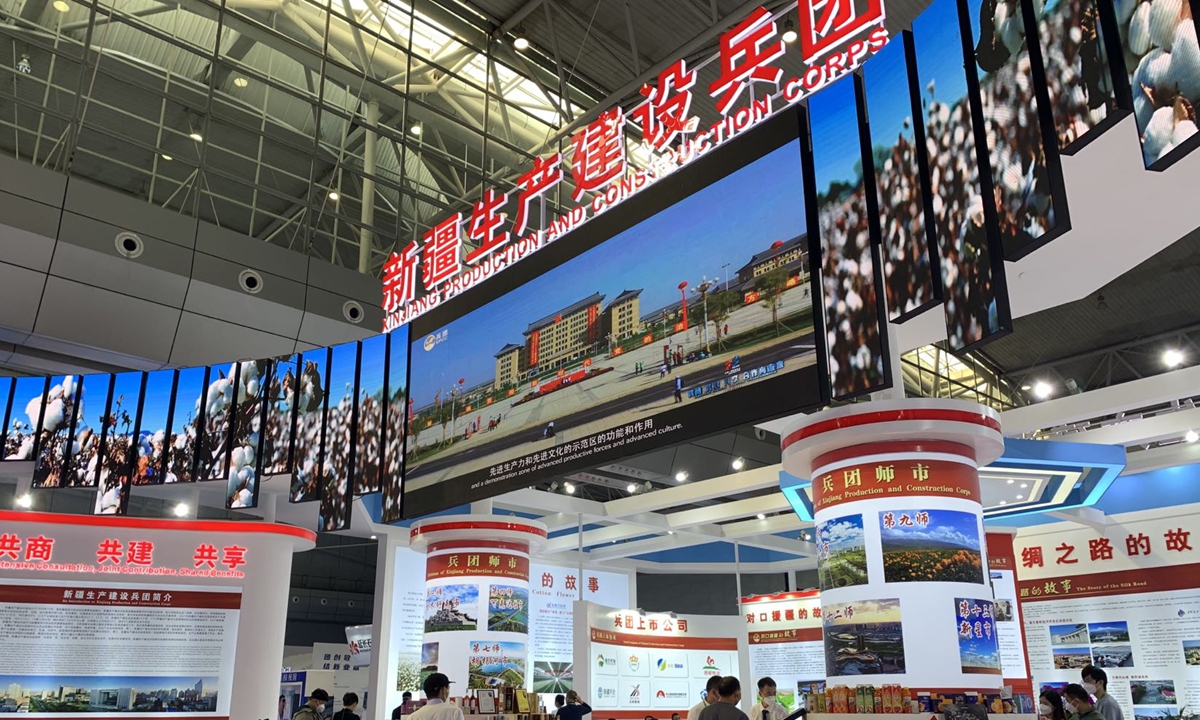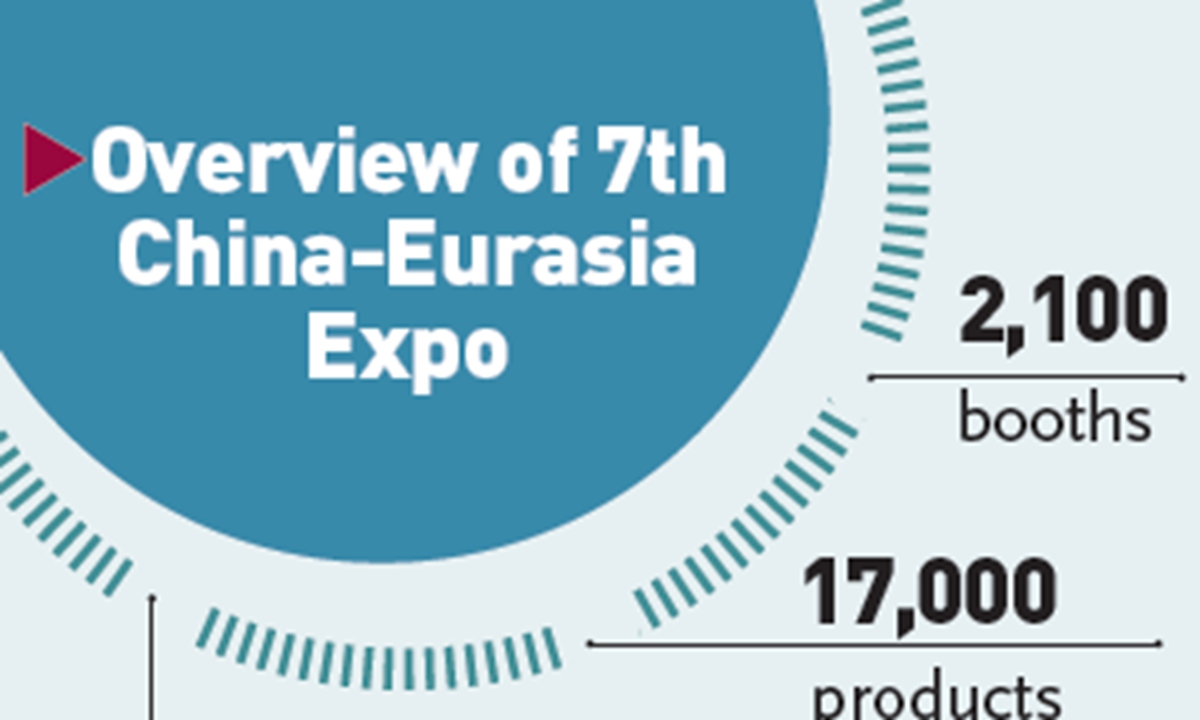Expo in Xinjiang attracts 3,600 firms, with record high new contracts
Region sees booming trade, dwarfing US’ vicious ‘sanctions’

A view of the 7th China-Eurasia Expo on Thursday in Urumqi, capital of Northwest China's Xinjiang Uygur Autonomous Region. Photo: Xing Xiaojing/GT

Photo: GT
The 7th China-Eurasia Expo concluded on Thursday in Urumqi, regional capital of Northwest China's Xinjiang Uygur Autonomous Region. The four-day fair attracted more than 3,600 domestic and foreign companies, and it set records for new contracts signed, dwarfing the US' vicious attempt to crack down on Xinjiang industries.
With an exhibition area of 40,000 square meters and 2,100 booths, the expo attracted more than 800 companies on-site, and a total of 3,600 enterprises from 32 countries and regions participated online.
Companies showcased nearly 17,000 products covering agriculture, food, science and technology, energy and finance. At the expo, Xinjiang not only highlighted its traditional farming and animal husbandry sectors, it also used 3D and other technologies to show the development of local modern industries.
Some anti-China forces in the West have been vilifying Xinjiang for years, attempting to contain the development of industries in Xinjiang with a groundless "forced labor" lie. US President Joe Biden even signed into law the so-called Uyghur Forced Labor Prevention Act in December 2021, banning all imports from Xinjiang. The bill became effective on June 21.
However, international businesses are still eagerly looking for opportunities in the region. "These unwarranted 'sanctions' have had a limited impact on Xinjiang's imports and exports," said Chen Xinbo, vice director of the Commerce Bureau in Xinjiang's Bortala Mongolian Autonomous Prefecture.
Xinjiang's manufacturing sector has been fully recognized in the markets of Asia, Europe and other places for years. Even amid the COVID-19 pandemic, Xinjiang's economy recorded steady growth, with cargo transported by rail and road reaching record highs and businesses flocking to the region, Chen told the Global Times.
No matter what measures the West takes, it cannot fundamentally affect Xinjiang's cooperation with Central Asia and Europe. "We have full confidence on that," Chen said.
Xinjiang has been expanding its opening-up to the international market through adopting a mixture of road, rail and sea transport modes, he added.
Mongolia is willing to cooperate with the Xinjiang region to increase meat exports from its five western provinces and seek cooperation in agricultural production, tourism and infrastructure, an official from the Mongolian government said at the opening ceremony of the expo.
During a signing ceremony of the expo held on Tuesday, 55 projects were collectively signed with a total value exceeding 489 billion yuan ($69.14 billion), involving energy storage, photovoltaic (PV) power, polysilicon and other projects, according to media reports.
During the expo, a total of 448 projects were signed, with a total contract value of 1.17 trillion yuan, the highest ever.
PV is among the sectors that have been attacked by the US-led clique. In 2020, Xinjiang region-produced polysilicon accounted for 55 percent of the total output of the world and China PV industry supplies more than 70 percent of PV modules to the global market, according to reports by domestic Guangming Daily.
Zhang Yan, an official of Xinjiang's Altay Prefecture, told the Global Times that the prefecture in the northern part of Xinjiang, bordering Russia, Kazakhstan and Mongolia, has conducted smooth cooperation with those three countries in areas including trade, agricultural development and others.
Xinjiang used to be a hinterland region with an undeveloped transportation system. Now as the core area of the Silk Road Economic Belt, it has become the frontline with the most convenient ports for goods traded between China and Central Asia, South Asia and Europe, Justin Lin Yifu, director of the Center for New Structural Economics at Peking University, said at a forum of the expo through video link.
The allegation of "forced labor" in Xinjiang is a huge lie made up by anti-China forces to smear China. It is the complete opposite of the reality of Xinjiang, where cotton and other industries rely on large-scale mechanized production, and the rights of workers of all ethnic groups in Xinjiang are duly protected, Wang Wenbin, a spokesperson of China's Foreign Ministry, said at a press conference on June 21 after the US bill took effect.
